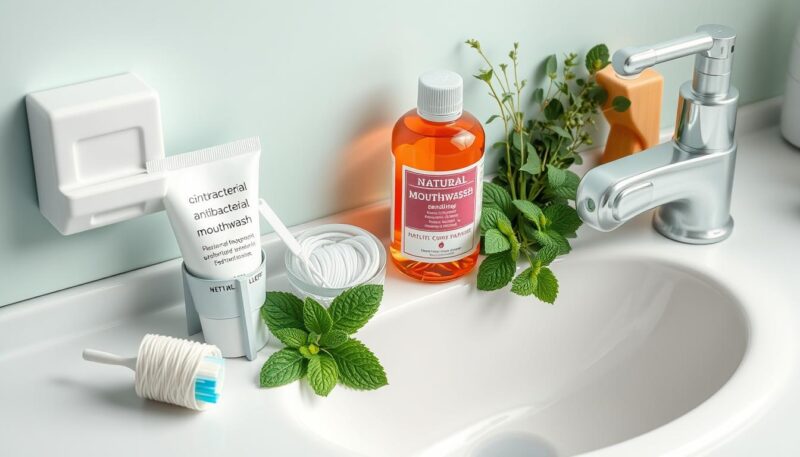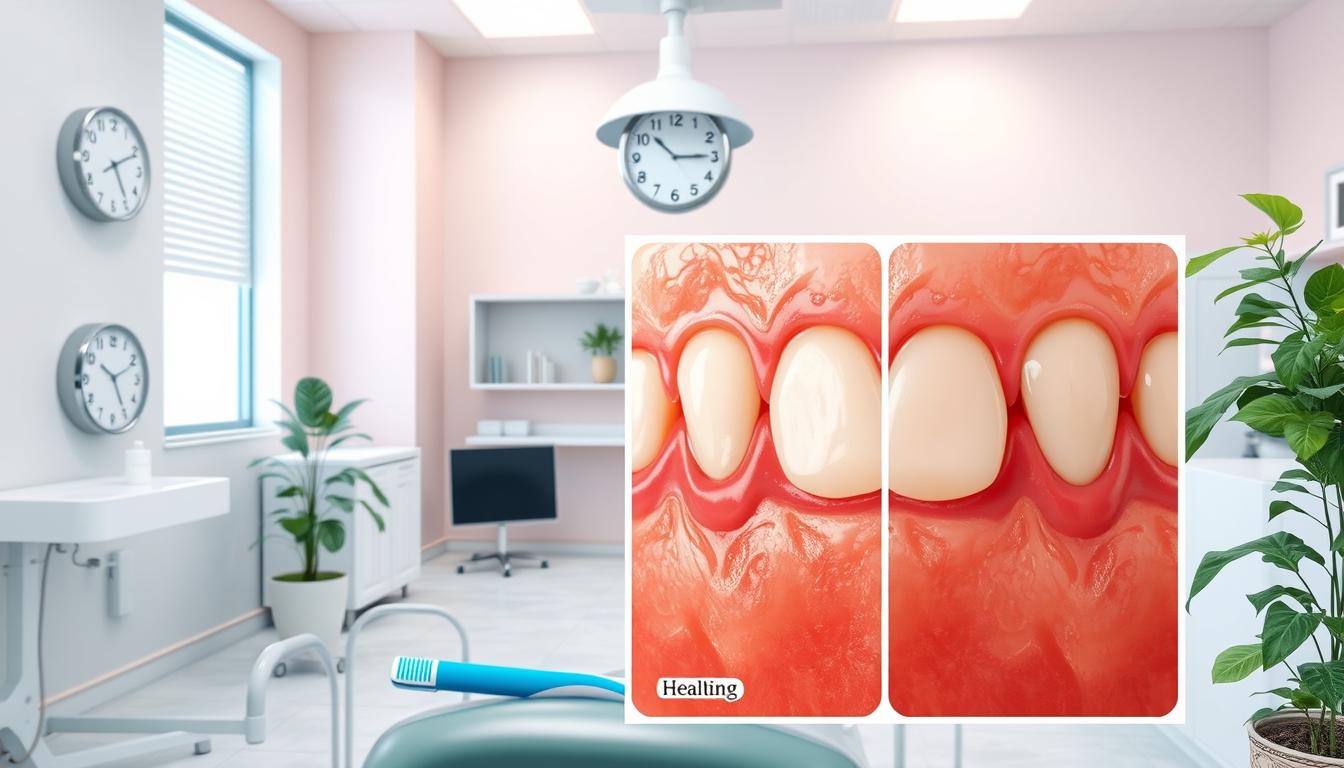When you’re dealing with gingivitis, one of the first questions that comes to mind is how long does gingivitis last. The good news is that with prompt and effective treatment, gingivitis can be reversed within about two weeks. Understanding the gingivitis duration and gingivitis recovery time is crucial in managing the condition and preventing its progression to more severe gum diseases like periodontitis.
The key to reversing gingivitis is to give it the right treatment, and the sooner you start, the better. You can expect the gingivitis recovery time to vary depending on the severity of the condition, but with proper care, you can prevent gingivitis from returning quickly. In this article, we’ll delve into the factors that influence how long gingivitis lasts and explore the most effective treatment options for a healthy smile.
It’s essential to understand that gingivitis is a common condition that can be effectively managed with proper care and treatment. By knowing how long gingivitis lasts and what to expect during the recovery time, you can take control of your oral health and prevent the condition from progressing. In the following sections, we’ll discuss the signs and symptoms of gingivitis, the typical duration without treatment, and the factors that affect the recovery timeline, so you can make informed decisions about your gingivitis treatment and recovery.
Understanding How Long Gingivitis Lasts and Its Progression
Gingivitis is a common gum disease affecting up to 90% of adults worldwide. Recognizing the signs of gingivitis early can prevent more severe dental issues.
Common Signs and Symptoms of Gingivitis
Identifying gingivitis symptoms is crucial for timely treatment. Look out for:
- Persistent bad breath
- Red and swollen gums
- Bleeding when brushing and flossing
Typical Duration Without Treatment
If left untreated, gingivitis can progress to periodontitis, a more severe form of gum disease. Without proper oral hygiene for gingivitis, symptoms can worsen within a few weeks.
Factors Affecting Recovery Timeline
The recovery from gingivitis depends on several factors:
- Consistency of daily brushing and flossing
- Overall health and immune response
- Severity of the initial condition
- Diet and lifestyle choices, such as smoking
When to Expect Improvement
With diligent oral hygiene for gingivitis, you can start to see improvements in as little as two weeks. However, more severe cases may take several months to fully recover. Regular dental check-ups are essential to monitor progress and prevent recurrence.
| Factor | Impact on Recovery |
|---|---|
| Oral Hygiene Consistency | High consistency speeds up healing |
| Overall Health | Better health supports faster recovery |
| Severity of Gingivitis | More severe cases take longer to heal |
| Lifestyle Choices | Smoking can delay healing |
Effective Treatment Options for Gingivitis
Managing gingivitis starts with choosing the right treatment for gingivitis. Professional dental cleanings are essential, removing plaque and tartar that regular brushing can miss. Dentists may perform scaling and root planing to deeply clean your gums.

At home, adopting effective home remedies for gingivitis can make a significant difference. Floss daily to eliminate plaque between teeth and choose an electric toothbrush to enhance plaque removal. Brushing twice a day for two minutes each time ensures thorough cleaning.
Using antimicrobial mouthwashes helps reduce harmful bacteria, while saltwater rinses can soothe inflamed gums. Consistency in these practices is key to reducing inflammation and preventing gingivitis from returning.
- Daily flossing to remove plaque
- Using an electric toothbrush for better cleaning
- Rinsing with saltwater to reduce inflammation
- Applying antimicrobial mouthwash to fight bacteria
Regular visits to your dentist for professional cleanings and checkups complement these home efforts, ensuring your gingivitis treatment options are effective. By staying proactive with your oral hygiene routine, you can effectively manage and reverse gingivitis.
Preventing Recurrence and Maintaining Oral Health
Maintaining healthy gums is key to preventing gingivitis from coming back. Start by creating a consistent oral hygiene routine. Brush your teeth at least twice a day and floss daily to remove plaque that can lead to gum inflammation.
Choosing the right oral care products makes a big difference in oral hygiene for gingivitis. Opt for a toothbrush with soft bristles and a fluoride toothpaste to protect your gums and teeth. Using dental floss or interdental cleaners helps reach areas your brush can’t.
Regular dental check-ups are essential in preventing gingivitis. Professional cleanings remove tartar buildup that regular brushing can miss, reducing the risk of gum disease. Visit your dentist every six months to keep your oral health on track.
Lifestyle choices also impact your gum health. Eating a balanced diet rich in vitamins supports strong gums. Avoiding smoking significantly lowers your risk of developing gingivitis. Managing stress through activities like exercise or meditation can also benefit your overall oral health.
By following these strategies for preventing gingivitis and maintaining oral health, you can keep your gums healthy and avoid future issues. Take control of your oral hygiene, choose the right products, and stay consistent with your dental visits. If you have any concerns about your gum health, don’t hesitate to reach out to your dental professional for personalized advice.

